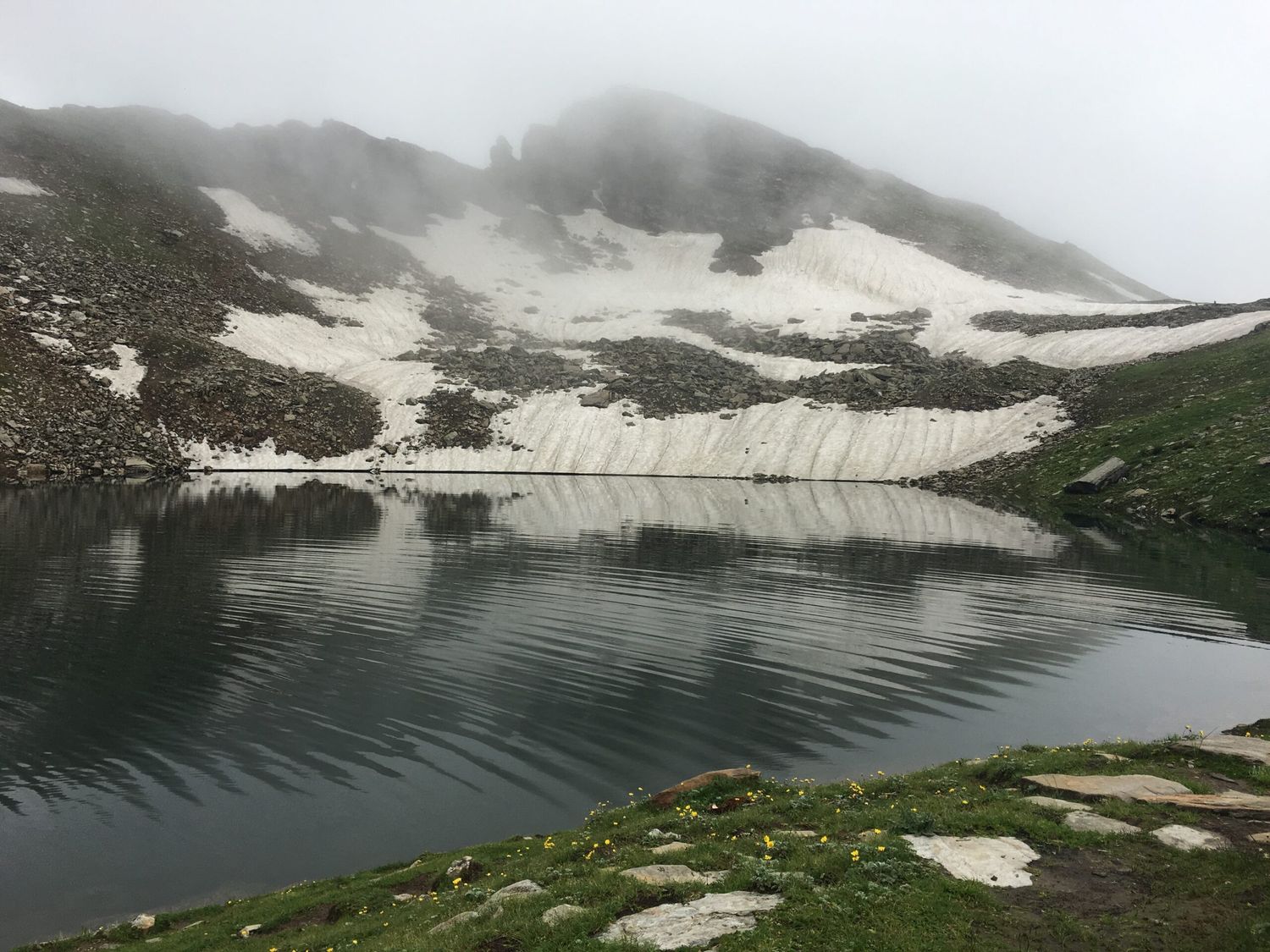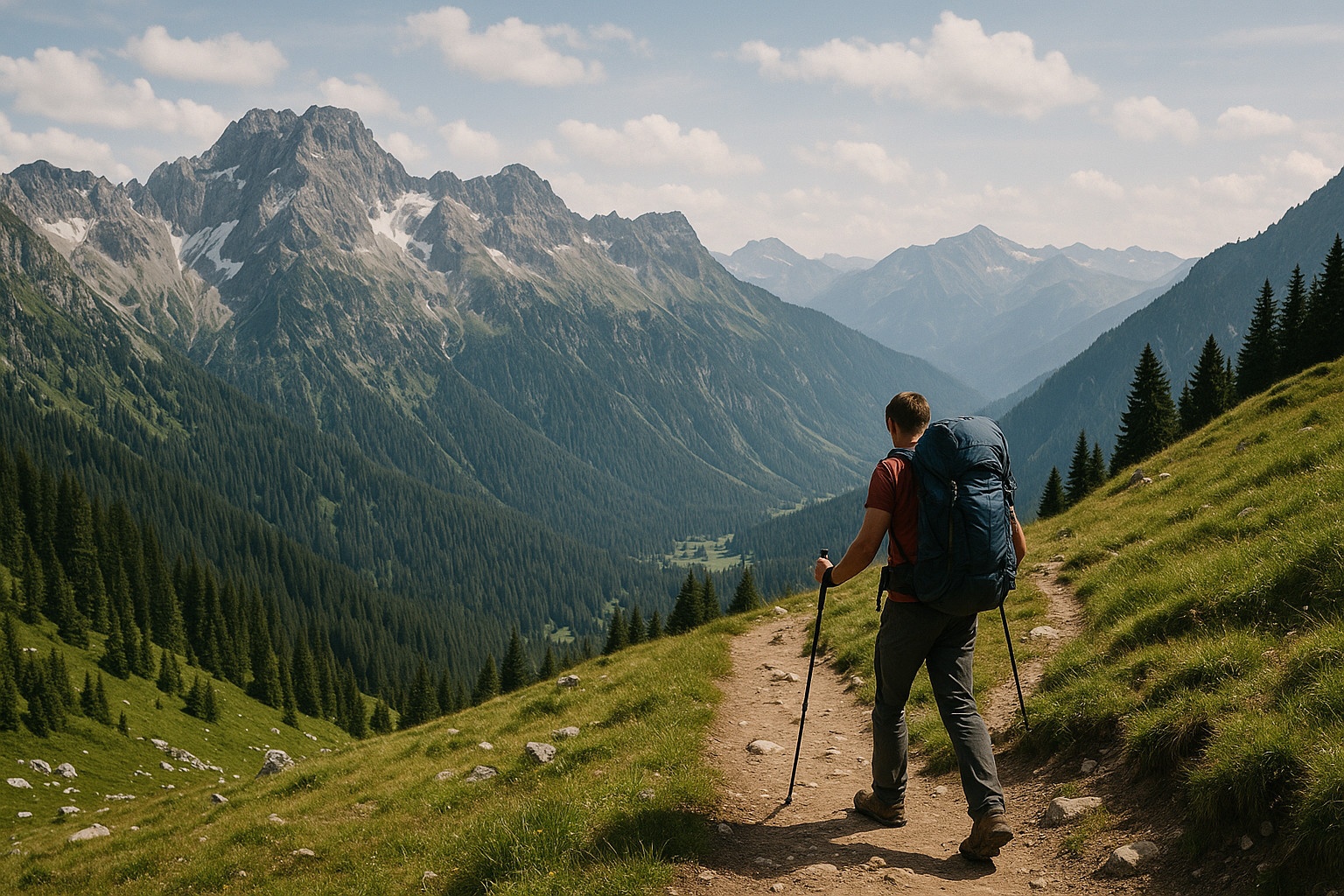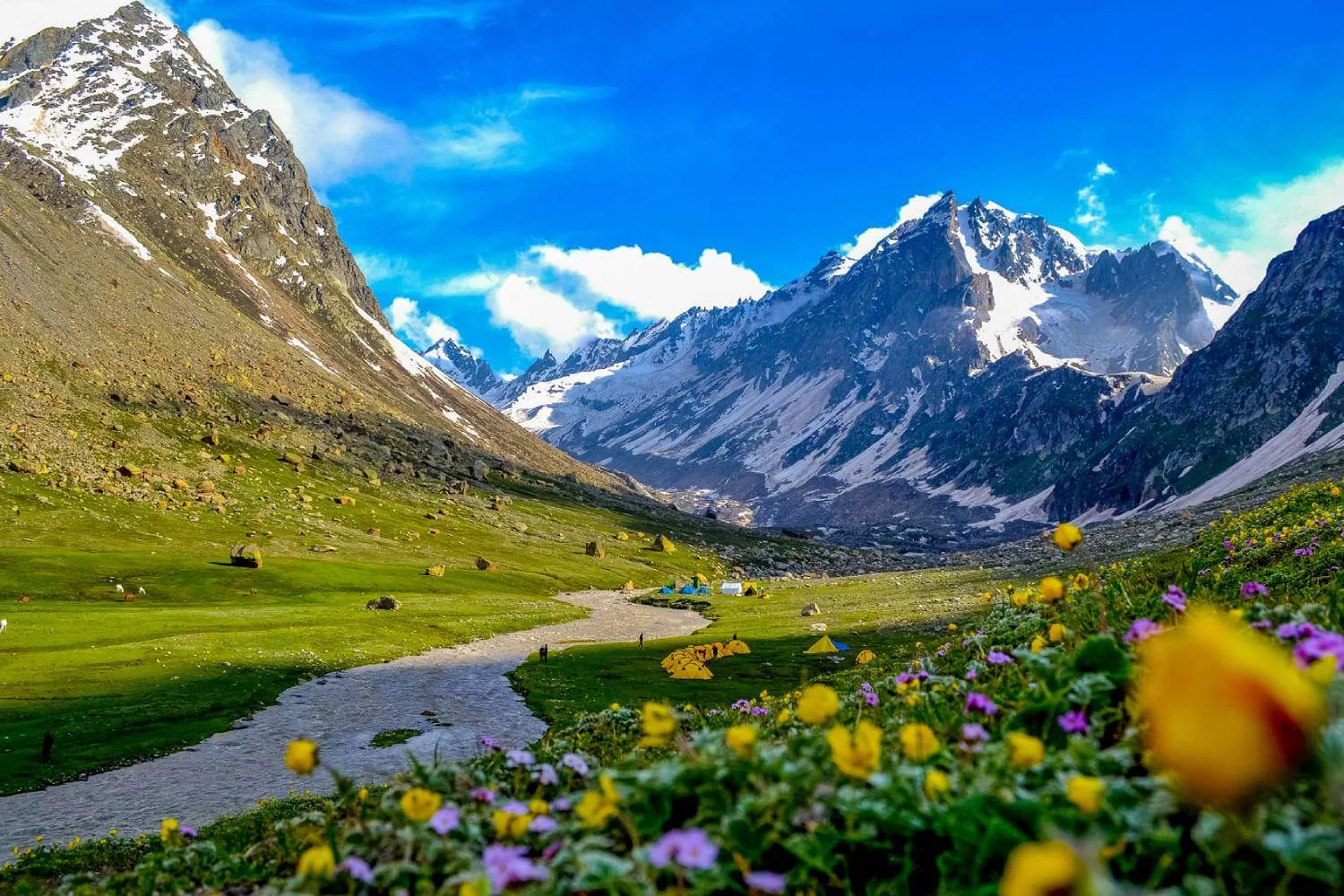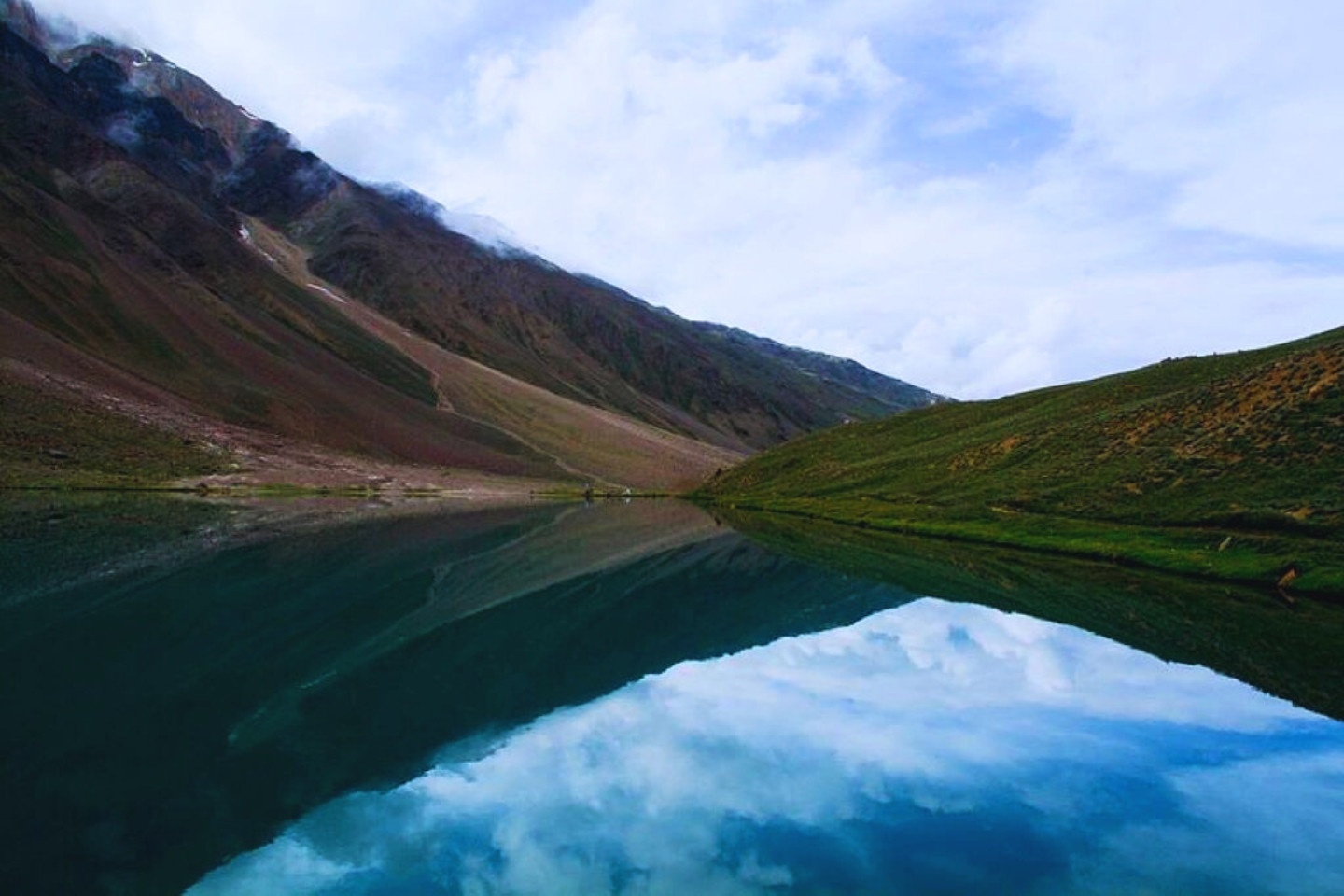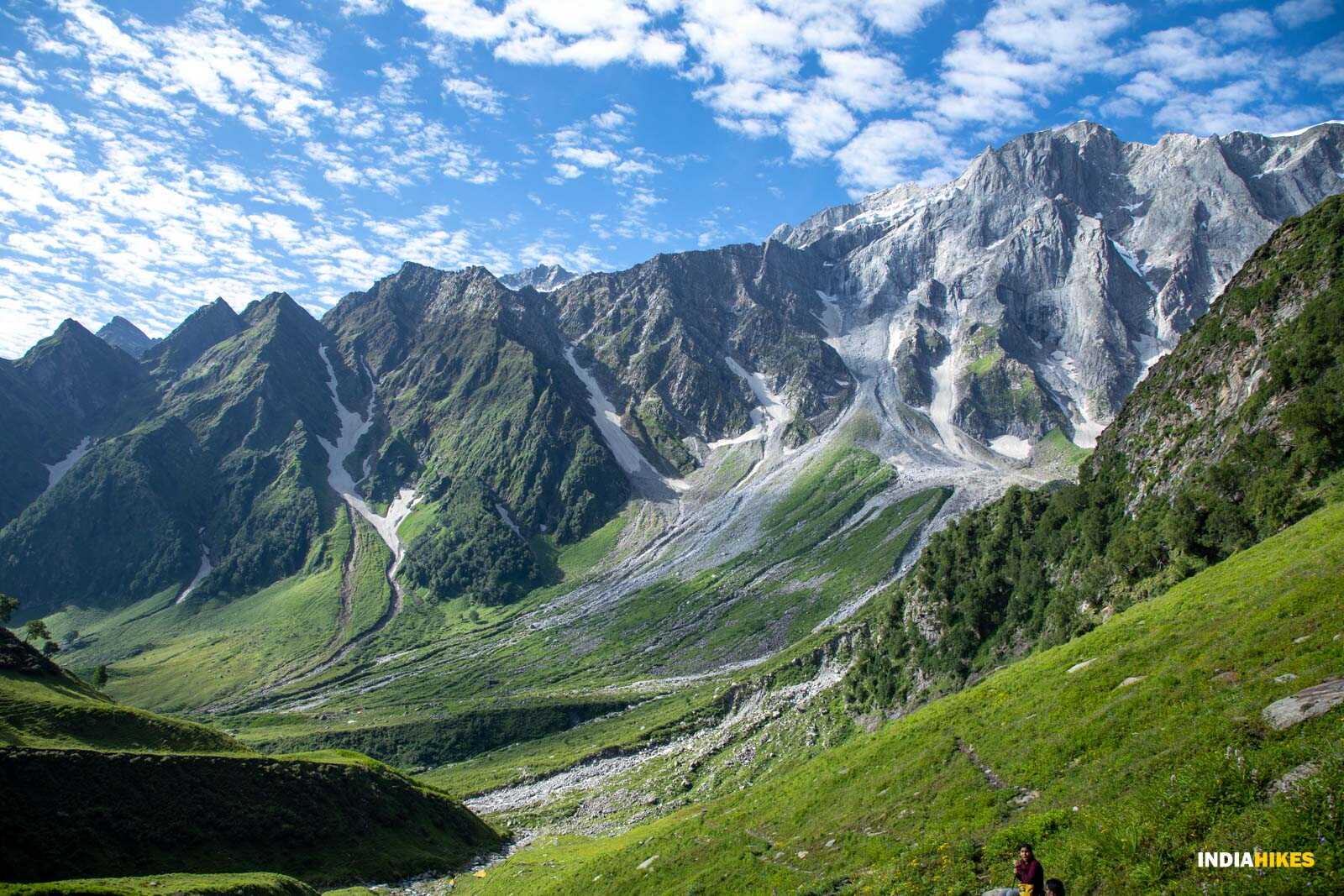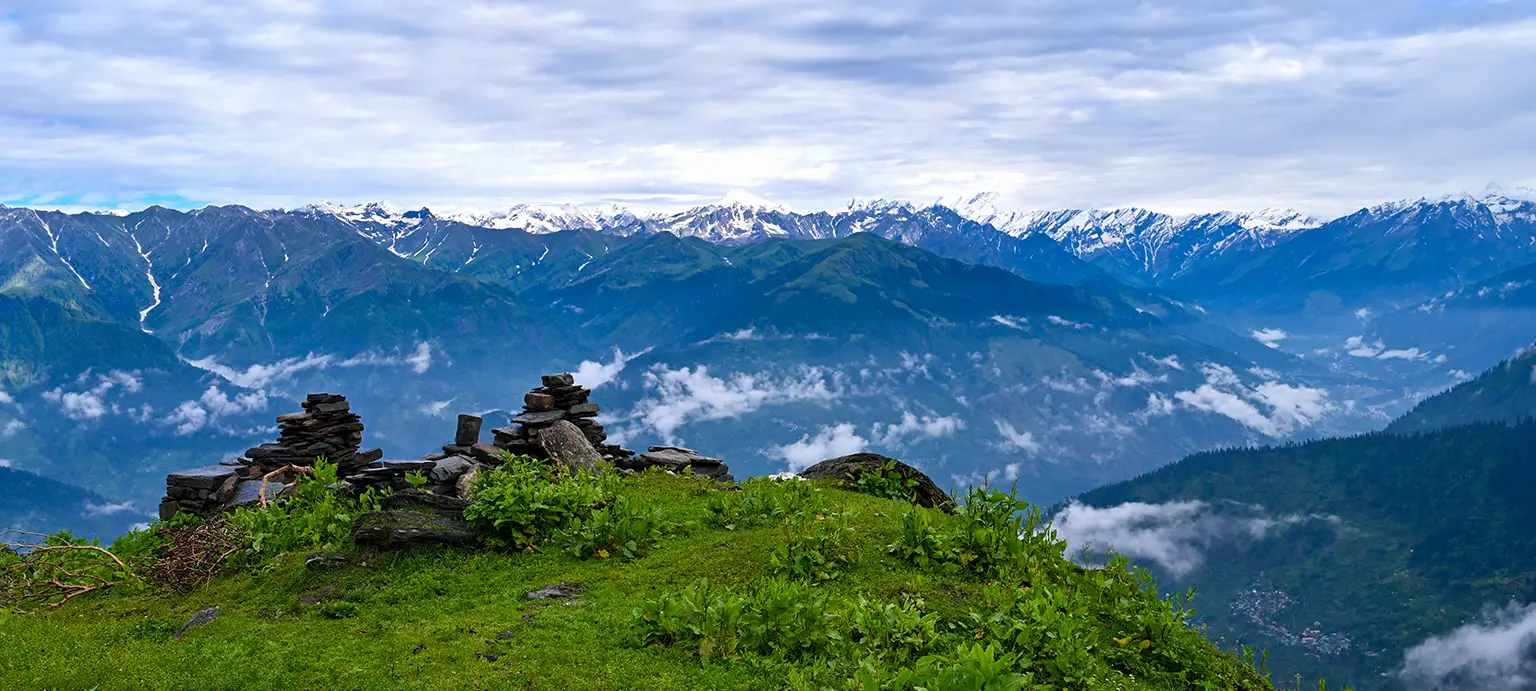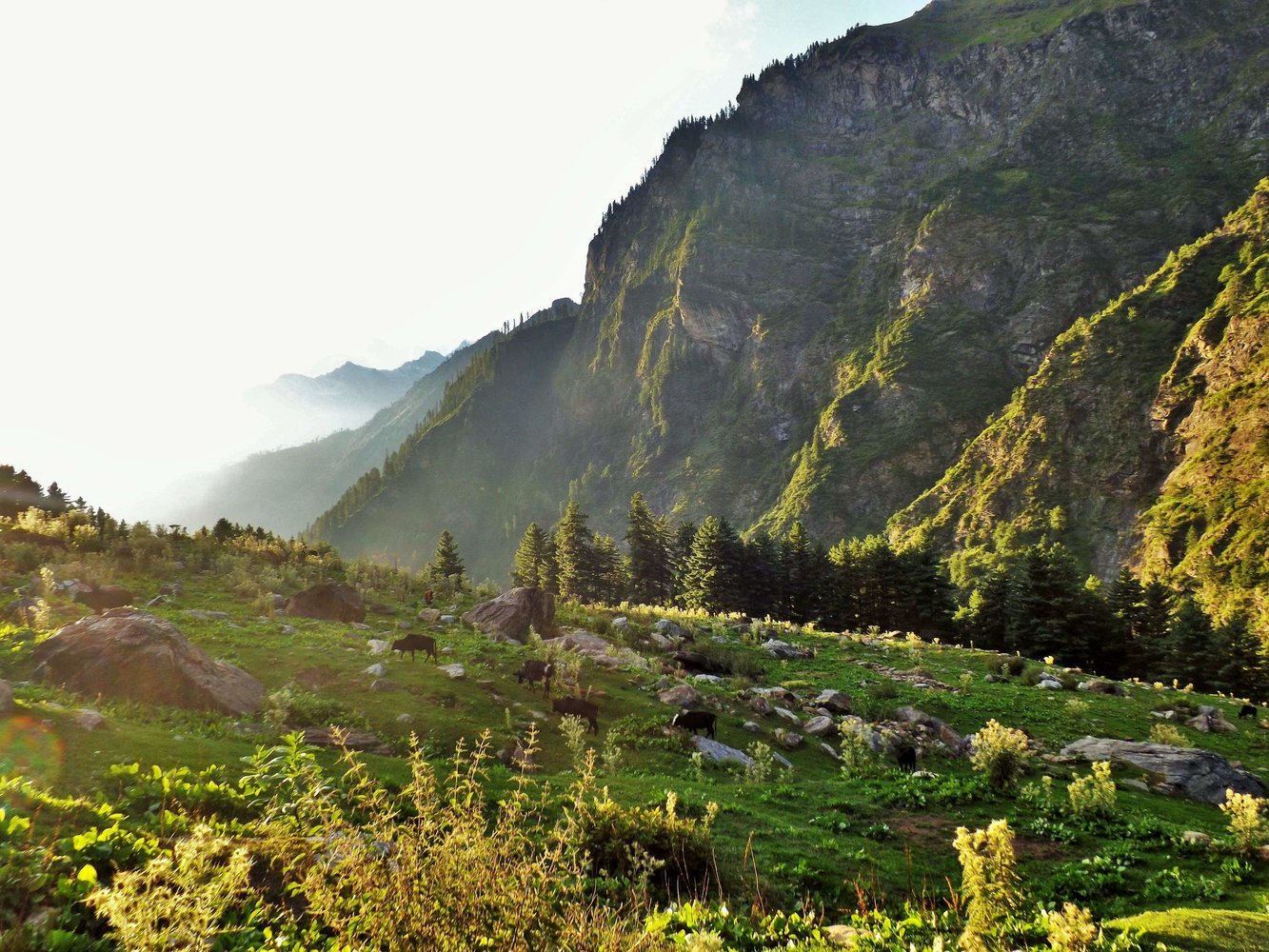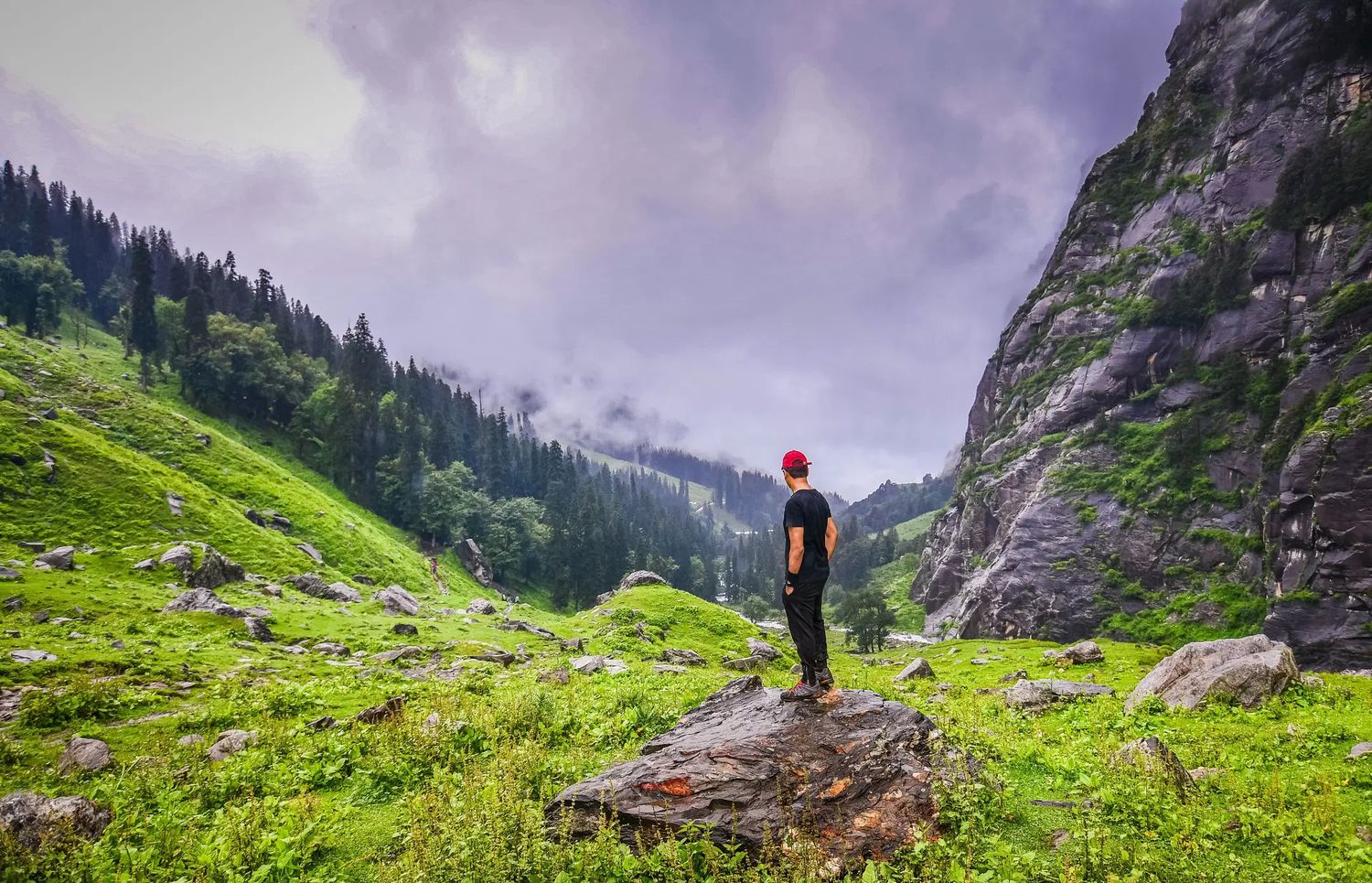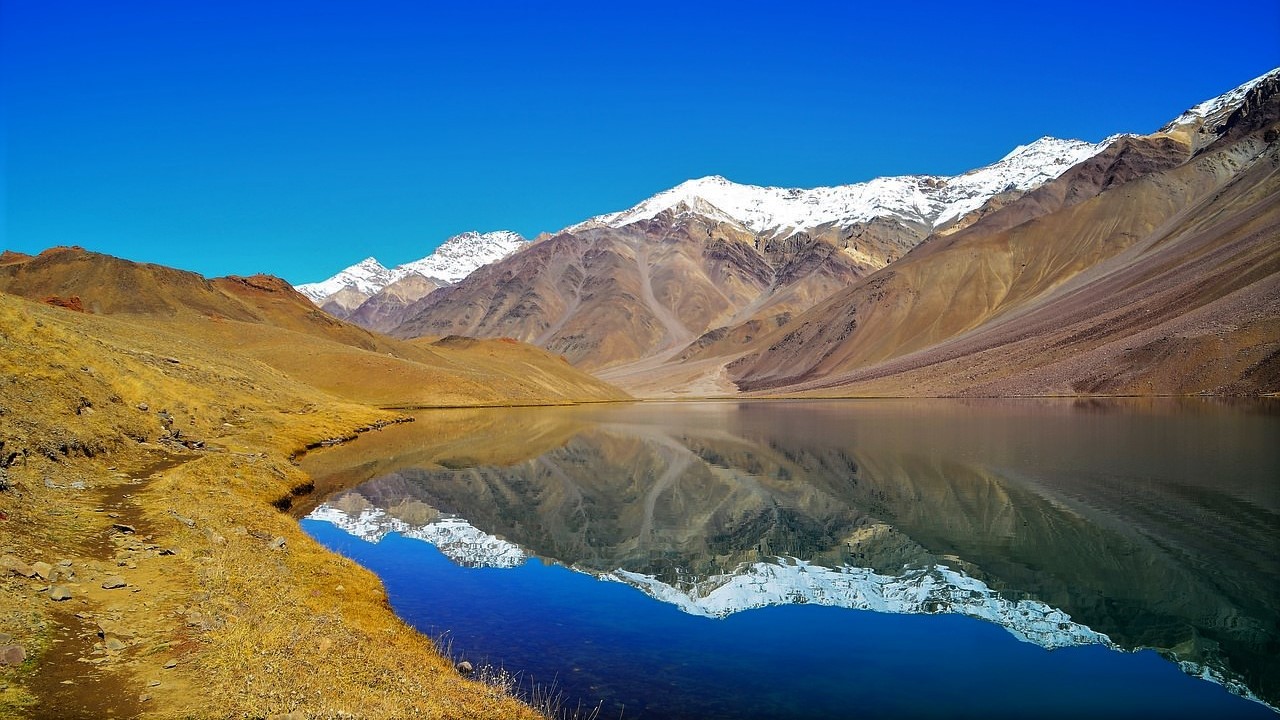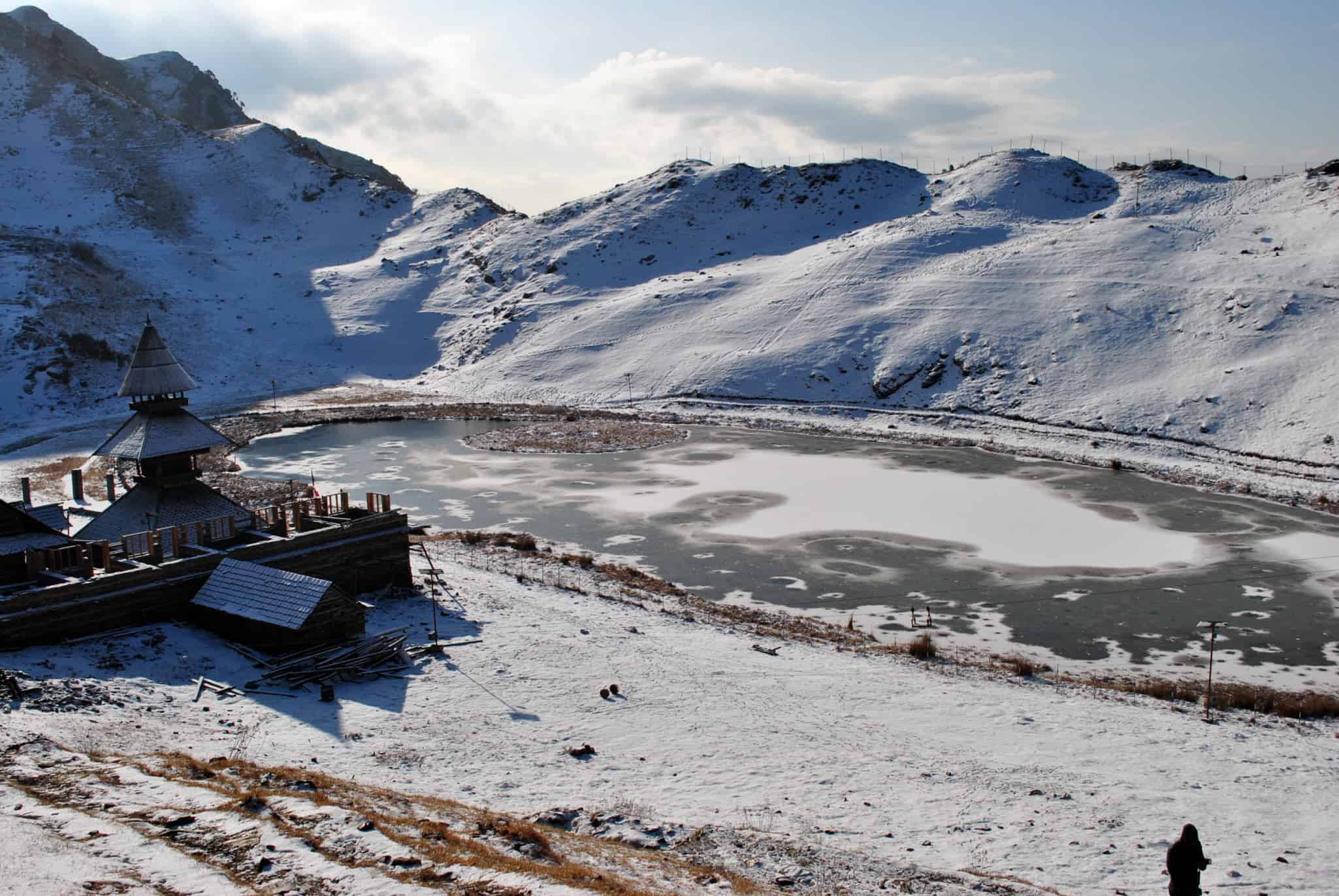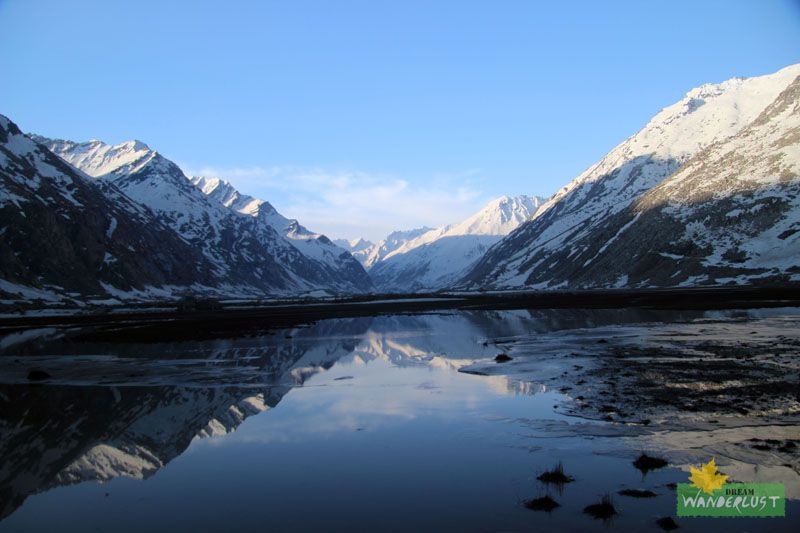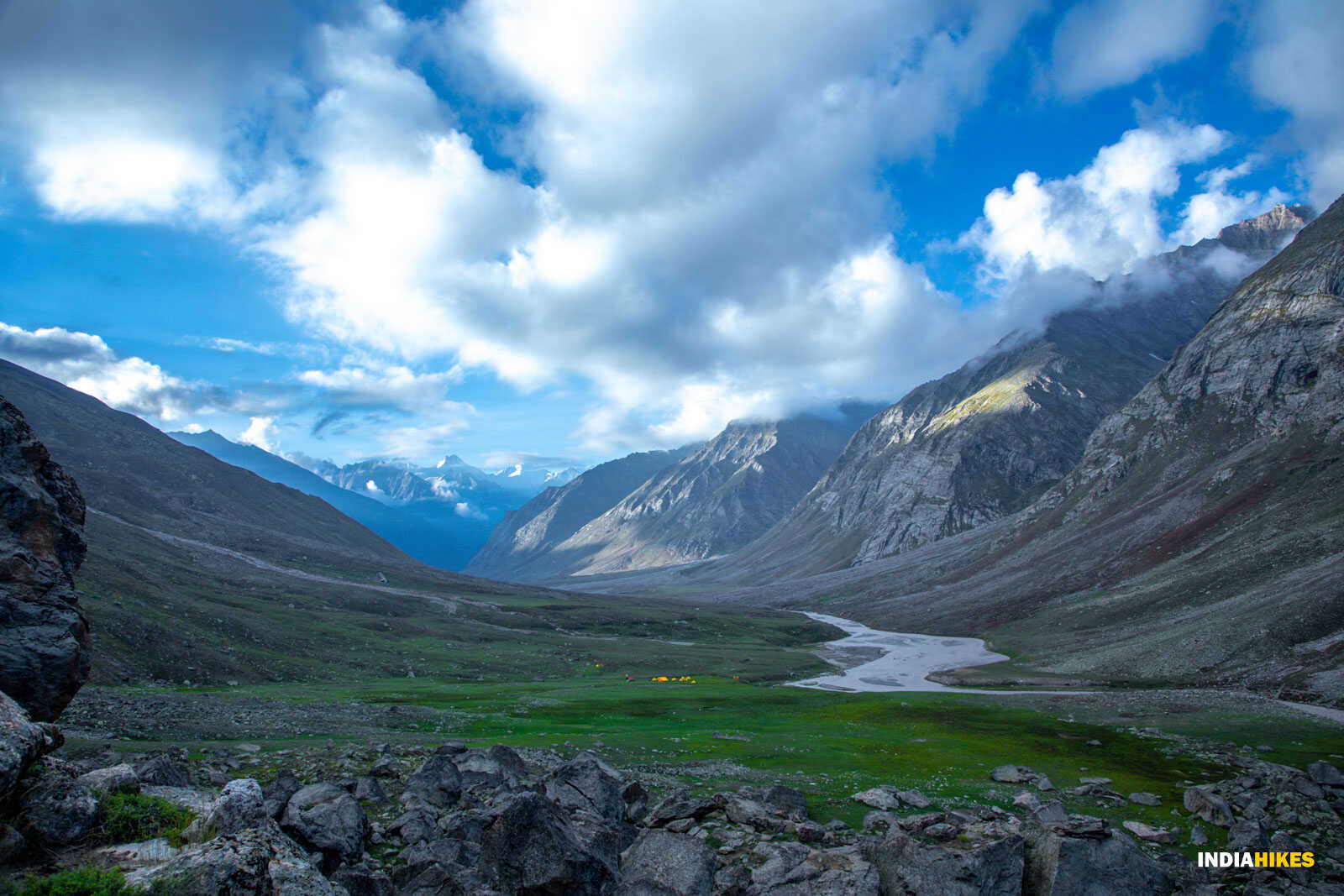Bhrigu Lake Trek: A High-Altitude Alpine Lake Above the Kullu Valley
The Bhrigu Lake Trek is one of the rare Himalayan treks that takes you above 4000 meters in a remarkably short span of time. Located near Manali in Himachal Pradesh, this trek leads to Bhrigu Lake, a glacial alpine lake perched at around 4300 meters. The trek is known for its rapid altitude gain, sweeping grasslands, and uninterrupted views of the Pir Panjal and Dhauladhar ranges. Unlike longer valley treks, Bhrigu Lake feels expansive and open from early on, with wide slopes replacing narrow forest trails as altitude increases. The experience is intense, scenic, and physically demanding despite the short duration.
The Route and Rapid Altitude Gain
The trek usually starts from Gulaba, a small settlement on the Manali Rohtang road. From the very first day, the trail begins to climb steadily through grass-covered slopes and forest patches. What sets the Bhrigu Lake Trek apart is the speed at which altitude is gained. Trekkers move from around 2700 meters to well above 4000 meters in just two days. This makes acclimatization extremely important. The route itself is straightforward and well defined, but the lack of gradual transitions means trekkers must pace themselves carefully. The ascent is continuous and open, with very few flat sections to rest.
Grasslands, Alpine Slopes, and Open Terrain
One of the most striking features of the Bhrigu Lake Trek is its landscape. After the initial forest sections, the trail opens into vast alpine grasslands that roll gently across the mountainside. These meadows are similar in character to high-altitude pastures found in other parts of Himachal, but here they stretch uninterrupted for kilometers. During summer months, the grasslands are green and dotted with small wildflowers. In early season, snow patches often remain scattered across the slopes. The openness of the terrain allows constant views of surrounding ridges, giving a strong sense of scale and elevation.
Bhrigu Lake and Its Mythological Significance
Bhrigu Lake sits in a natural bowl near the top of the trek, often partially frozen even during summer. The lake is considered sacred and is believed to have been used by Maharishi Bhrigu for meditation. Because of this belief, locals avoid bathing in the lake, treating it with respect. The water reflects the surrounding sky and peaks, changing color depending on light and weather. Clouds often move quickly at this altitude, sometimes covering the lake completely before clearing again. This shifting atmosphere gives the lake a dramatic and unpredictable character, making each visit feel unique.
Weather Patterns and Best Time to Visit
The best time to attempt the Bhrigu Lake Trek is from June to September, when snow has melted enough to make the trail accessible. Early June often still has large snowfields, especially near the lake, which can make the trek more challenging but visually striking. July and August bring greener meadows but also occasional rainfall. September offers clearer skies and colder nights, with improved mountain visibility. Due to its altitude, weather at Bhrigu Lake can change rapidly. Cold winds, sudden fog, and temperature drops are common, even during summer.
Difficulty Level and Who Should Attempt This Trek
The Bhrigu Lake Trek is classified as moderate to difficult, mainly due to its rapid altitude gain rather than technical difficulty. While the trail itself is not exposed or steep in a technical sense, the lack of gradual acclimatization can make the trek physically demanding. Trekkers should ideally have prior high-altitude experience or be in very good physical condition. This trek is well suited for those who want to experience alpine terrain above 4000 meters without committing to a long expedition, but it requires respect for altitude and proper preparation.
